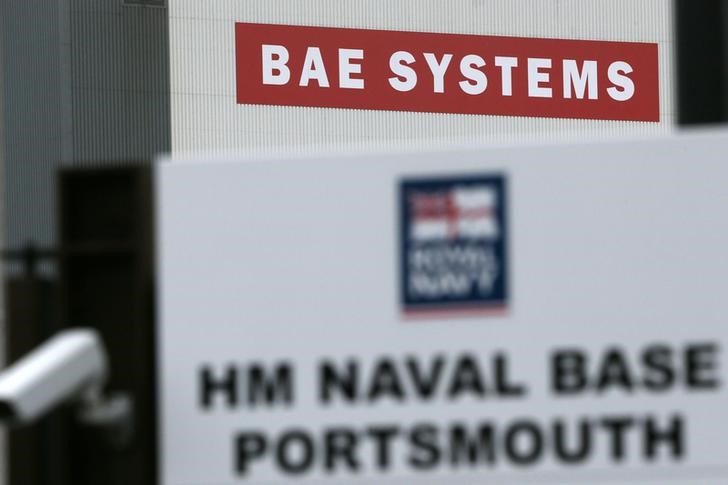LONDON (Reuters) - Europe's biggest defence company BAE Systems (L:BAES) plc warned on Thursday it would see no growth in earnings in 2015 after it reduced the rate of production of Typhoon aircraft and said it would cuts jobs in Britain and Australia.
The company said that including a benefit of 2 pence from tax provisions, it expected underlying earnings per sharefor 2015 of around 38 pence.
The downgrade brings the company in line with current market expectations, as analysts recognized a big order from Saudi Arabia for the jets was unlikely to land this year.
BAE said in February that for 2015 it expected underlying earnings per share to be marginally higher than the 38 pence per share it made in 2014, a forecast that was partly dependent on new orders of more Eurofighter Typhoons for Saudi Arabia and work for its shipyards in Australia.
Shares in the BAE Systems were trading up 4.2 percent at 456.8 pence at 0837 GMT, as the market reacted well to the company's comments that the overall business environment was improving.
"It's kind of a relief they've bit the bullet on two things...and they're saying that there's an improving businesss environment, talking about the U.S. budget," said analyst Edward Stacey at Haitong Research.
BAE said on Thursday it was reducing the rate of production of the Typhoon fighter jet to ensure it was cost competitive over the medium term, and as a result it would cut up to 371 jobs in its military air and information business.
"The lower production rate, together with the existing profile of contracted aircraft deliveries, is expected to result in Typhoon production sales reducing from approximately 1.3 billion pounds in 2015 to approximately 1.1 billion in 2016," it said.
The group said it was also cutting more jobs at its Williamstown shipyard in Australia to reduce operating costs and remain competitive. It said there was no near-term prospect of work beyond current programmes.

BAE Systems said that overall it expected good sales growth in 2015 and a robust order backlog at the half year of 37.3 billion pounds underpinned its confidence in its prospects.